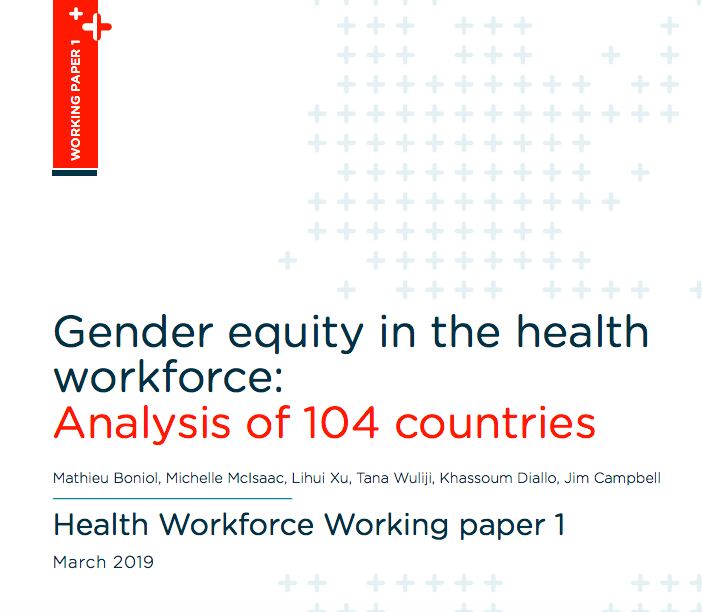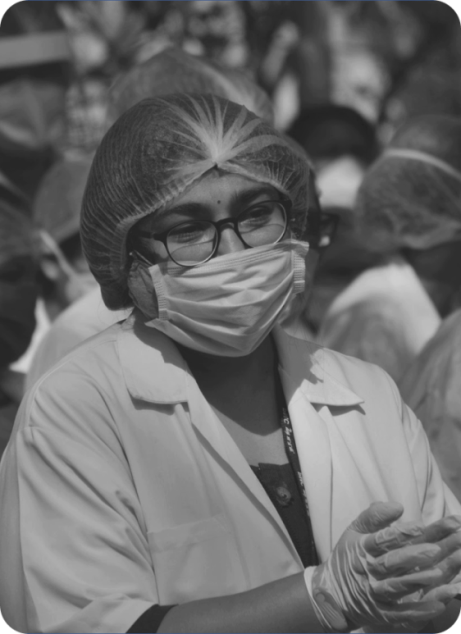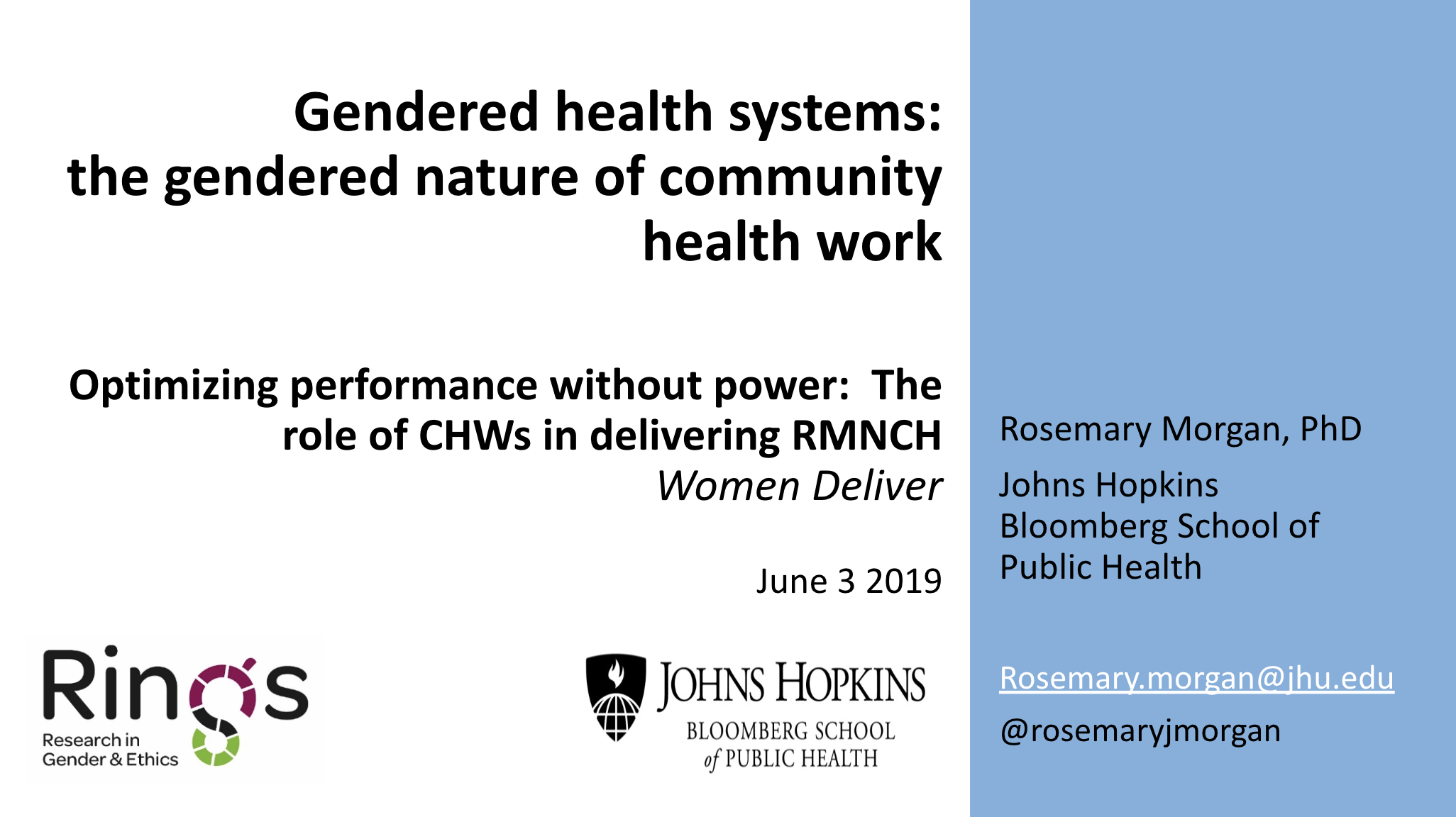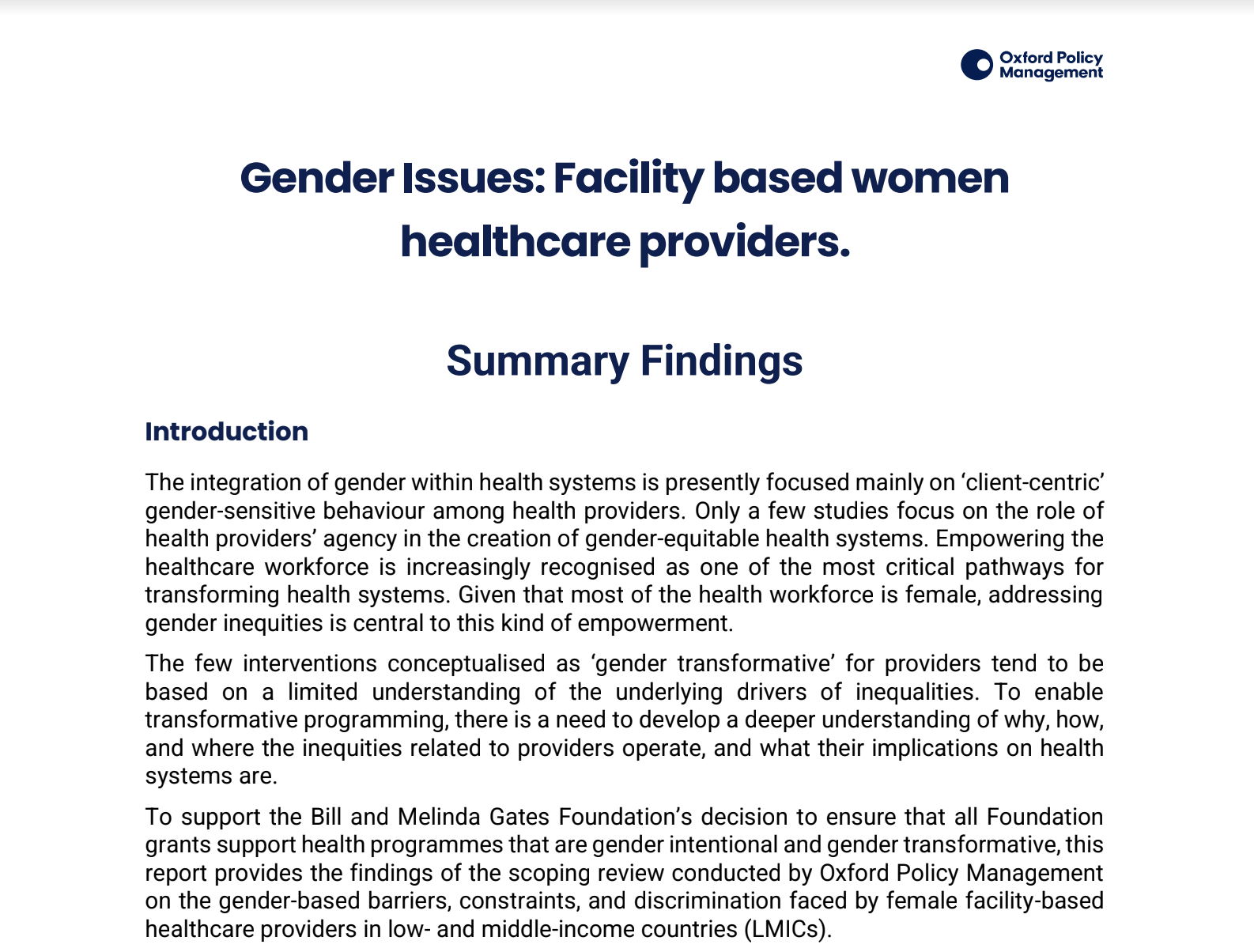Gender Equity in the Health Workforce: Analysis of 104 countries
WHO (Mathieu Boniol, with contributions from Jim Campbell, Khassoum Diallo, Michelle McIsaac, Tana Wuliji and Lihui Xu)

WHO, together with the International Labour Organization(ILO) and Organisation for Economic Co-operation and Development (OECD), adopted the Working for Health programme in 2017, a joint inter-agency multi-SDG programme to accelerate the expansion and transformation of the health and social workforce. The programme embraces gender as a core tenant and seeks to utilize workforce plans, investments and actions to seize the opportunities to realize the gender dividend. In November 2017, WHO established the Global Health Workforce Network which includes a Data and Evidence Hub and a Gender Equity Hub, which both bring together key stakeholders for strengthening data and evidence and supporting gender transformative actions and investments. While gender issues have been at the top of the global agenda, few comprehensive studies on gender in the health and social workforce have been conducted at the global level. This brief is based on an analysis of WHO National Health Workforce Accounts (NHWA) data for 104 countries over the last 18 years.
Published on March 2019


